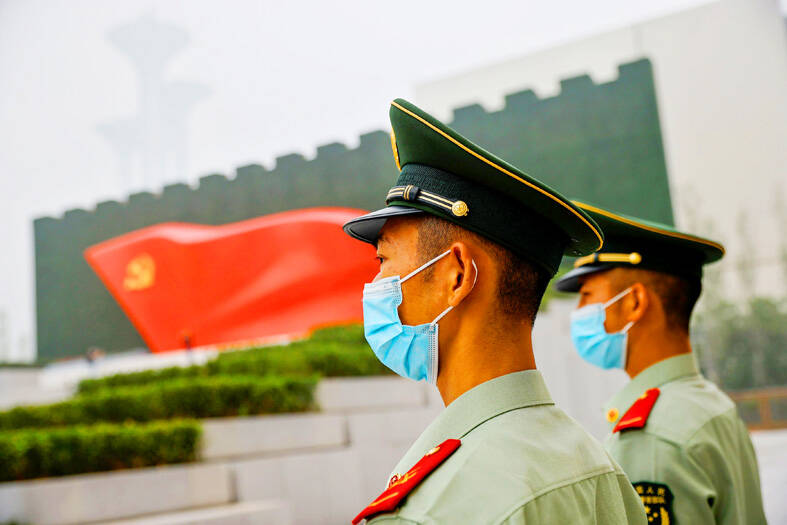Southeast Asian states know that a balance of power and influence between China and the U.S. in East Asia is necessary for their independence and security. Hence the concerns that surface periodically about the sustainability of the U.S. presence in the region. There are no such concerns about China because its geographical proximity ensures a permanent presence.
There are dangers that the wars in Europe and the Middle East, if prolonged, will be detrimental to the U.S. posture in the Asia-Pacific. Take the Ukrainian conflict. After enjoying military gains in 2022, Ukraine’s 2023 counter offensive to drive the Russians out of Ukrainian territory has not achieved any significant breakthrough. The conflict has become a grinding war of attrition, with neither side making significant territorial gains and both incurring heavy casualties. It will not end anytime soon. Russia has clear advantages in such a prolonged war of attrition and is likely to prevail in the end. It is the much bigger country with a GDP nearly 10 times bigger than Ukraine’s before the invasion, a population four times bigger that enables it to recruit many more soldiers, and a far larger capacity to produce weapons and munitions.
The Israel-Hamas war has also diverted U.S. attention from Asia. If the war spreads and the U.S. gets sucked into a conflict from which there is no easy exit, then more resources and attention will have to be allotted.
What will happen when it becomes clear that Ukraine will not recover its lost territories and indeed may lose more territory? It is unlikely that the U.S. and NATO will get directly involved in the war against Russia as that could lead to a third world war. The other option is to persuade Ukraine to accept a “settlement” that allows Russia to keep the parts of Ukraine it already occupies. Such a “settlement” is unlikely to be enduring and will not extricate the U.S. from Ukrainian entanglement. Indeed it may entrench it in a long-term confrontation with Russia, which will not abandon its goal of incorporating the whole of Ukraine into Russia or enfeebling it if it cannot do so. So the conflict could become a frozen one, like the one on the Korean peninsula. It will demand continual U.S. military and economic support for Kyiv as Russia will continue to try to weaken Ukraine through subversion and other pressures or launch another invasion later on. In this dismal drama, Russia-China strategic cooperation could also become further entrenched which will have implications for Northeast Asia where Russian naval and air forces carry out patrols near Japan and Taiwan.
There is also the dimension of U.S. domestic politics. Already there is growing opposition to U.S. support for Ukraine within the Republican Party and disquiet among sections of the American public. If a Republican like former President Donald Trump is elected to the White House and decides to end support for Ukraine, the implications would be immense. If European NATO members are unable to substantially increase their own support, the casualty would not just be Ukraine but a vital principle of the United Nations Charter against aggression and the violation of territorial sovereignty, with ominous international implications.
The Israel-Hamas war has also diverted U.S. attention from Asia. If the war spreads and the U.S. gets sucked into a conflict from which there is no easy exit, then more resources and attention will have to be allotted. At a time when the U.S. is in intense competition with China for influence in Southeast Asia, its mostly strong support for Israel is already hurting its relations with important Muslim majority states in the region like Indonesia and Malaysia. Since support for Israel is particularly strong on the right of the U.S. domestic political spectrum, a Republican win in 2024 could further bolster support for Israel even as the U.S. weakens support for Ukraine.
Like the Ukrainian conflict, the longer-term prospects for the Israeli-Hamas conflict do not look good. It is unlikely that Israel would be able to obliterate Hamas. It is also uncertain what price it and the international community would have to pay in the process of it trying to do so. The uncertainties would include the effects of pressures that moderate Arab states will face from their populations, of anti-Israel public sentiments on the policies of democratic Western states, including the U.S., and a possible wider war involving Hezbollah, uprisings in the West Bank and possible Iranian participation. Israel will not agree that a realistic long-term solution should be based on a two-state formula. And since the U.S. will remain tied closely to Israel, it will probably have to continue supporting it come what may. Already the US has got itself directly involved, though only in a small way, when a U.S. Navy destroyer shot down cruise missiles launched by Iran-backed Houthis and directed at Israel.
U.S.- China relations remain marked by deep distrust and so are prone to misunderstanding and miscalculation. Nobody wants a U.S.-China military confrontation but what if there is an accidental clash in the South China Sea? Or if China for some reason decides to test U.S. resolve in the South China Sea, over the Diaoyu/Senkakus islands or on Taiwan? Would the U.S. be able to respond adequately to maintain confidence in the East Asian balance among its allies and partners? This question would become more pressing, if Washington becomes increasingly entangled in other regions and faces domestic problems and financial stresses. In conclusion, the wars in Europe and the Middle East portend more geopolitical uncertainty for East Asia. In addition, U.S. distraction to other regions and deeper Russia-China strategic cooperation would only compound the miserable geopolitical mix facing the region.
2023/286



